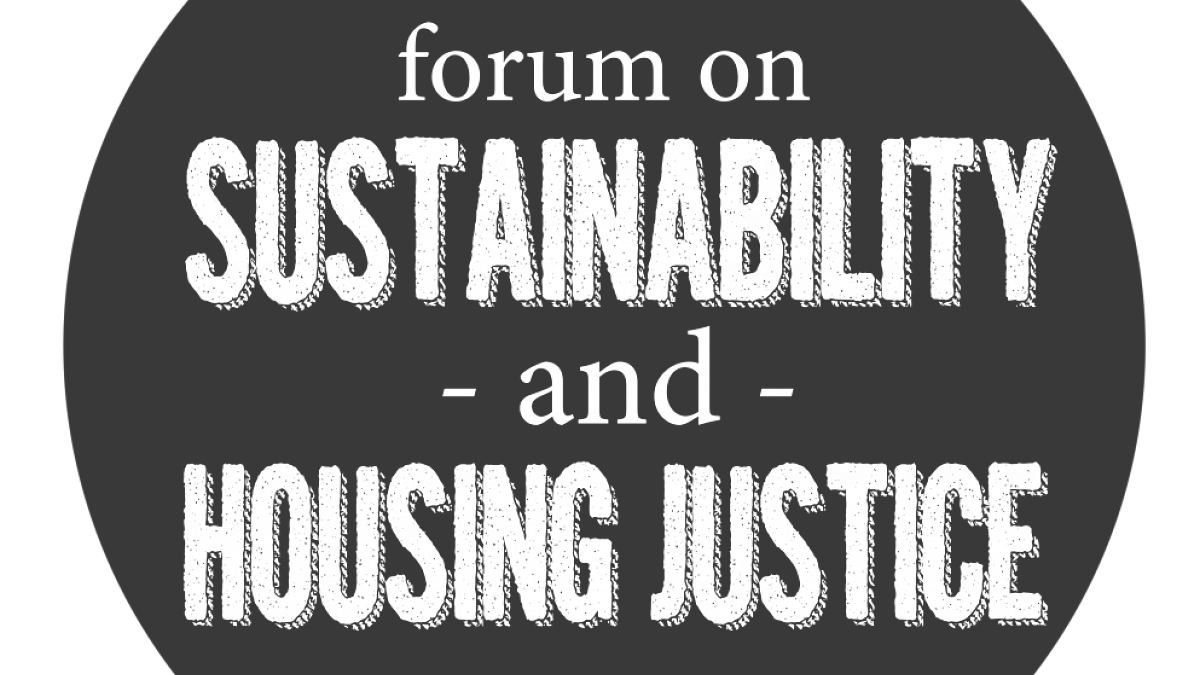A small team of graduate students is connecting the dots between two issues that they believe are inseparable — sustainability and housing justice — at an educational forum taking place Friday, Oct. 16, from 10 a.m. to 5 p.m. in the Knight Library Browsing Room.
The event, “The Forum on Sustainability and Housing Justice,” features scholars, activists and presentations from the community with the ultimate goal of exploring the overlap between factors that lead to homelessness and the reasons behind environmental problems and to offer possible solutions.
“With the daily visibility of homelessness in Eugene and our shared values of environmentalism and sustainability, it is crucial for the community to consider the intersection of these two issues,” said Jon LaRochelle, one of the forum’s organizers and a graduate teaching fellow in the UO Department of Philosophy. “You can’t fully understand homelessness or sustainability without taking the other into account.”
For the first three hours of the event an information and volunteer fair will take place, complete with information booths and representatives from community organizations and campus groups. From 2 to 4 p.m., there will be a panel discussion featuring people from the university as well as the broader Eugene and Portland communities.
The activist and scholar panel will consist of five speakers: Erin Moore, a professor in the UO School of Architecture and Allied Arts; Paul Catino, a park host and “Learnscape & Restoration” coordinator for local group Nearby Nature; Michael Withley, from Portland-based Micro Community Concepts; Andrew Heben, of the tiny house-building nonprofit organization SquareOne Villages; and Donita Sue Fry, the Youth & Elders Council coordinator for the Native American Youth and Family Center in Portland.
For forum organizer April Anson, a graduate teaching fellow in the UO Department of English, her inspiration for the event came from her experience building, owning and living in a tiny house. While the panel discussion will tackle the reasons behind widespread homelessness and impactful environmental crises, the forum will come full circle by giving an example of one feasible solution to those problems: There will be an on-site Conestoga Hut display as a model of sustainable, affordable housing — similar to Anson’s tiny house.
“Sustainability cannot be achieved when people’s rights, safety and dignity are not assured,” Anson said. “With this in mind, it’s our desire to explicitly address sustainability as a justice issue; to educate students about the interconnection between environmental and economic crises and to facilitate dialogue that galvanizes students and the community for years to come.”
The Forum on Sustainability and Housing Justice is funded by the Department of Philosophy and through a grant from the Student Sustainability Center.
— By Nathaniel Brown, Public Affairs Communications


